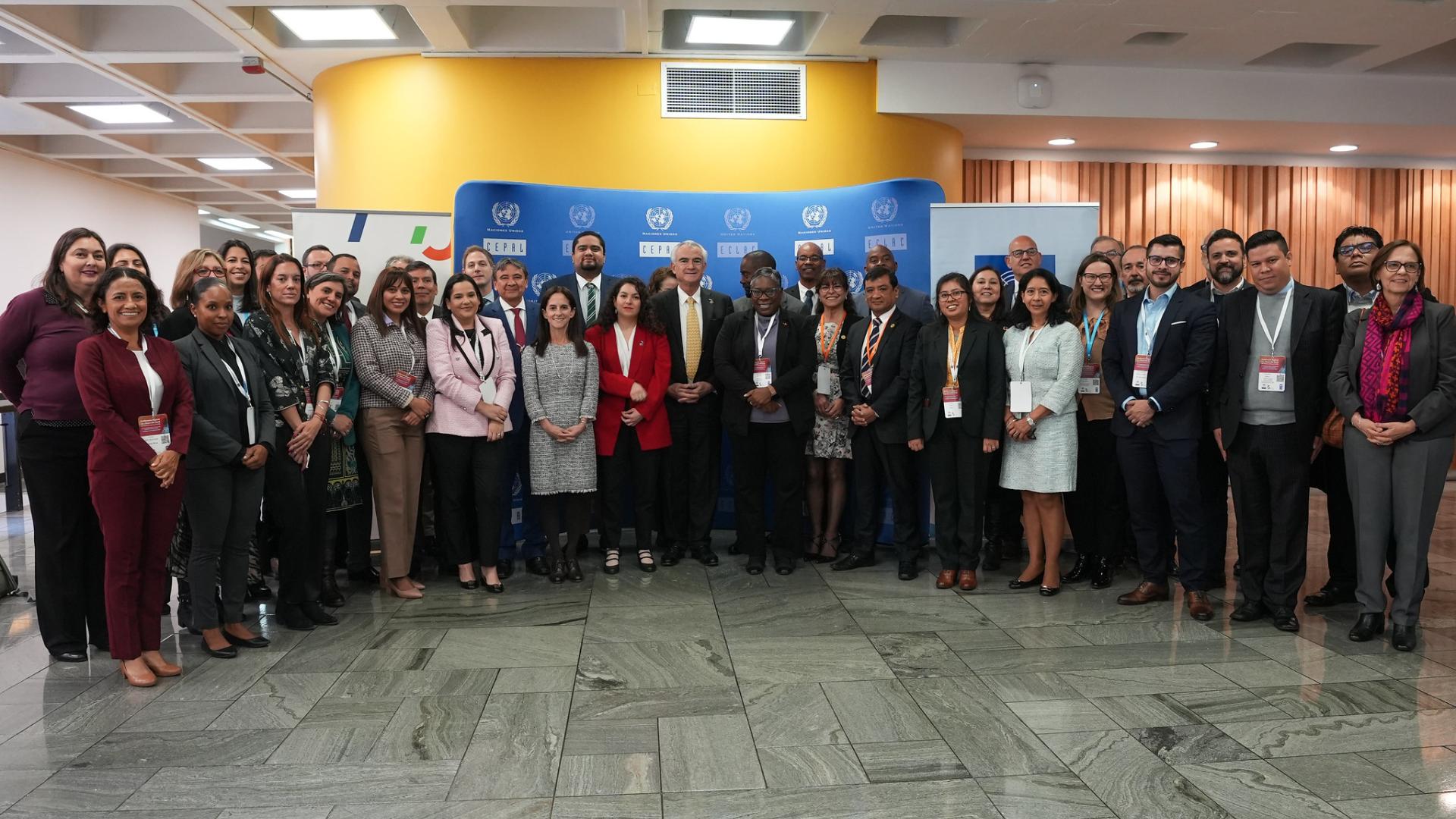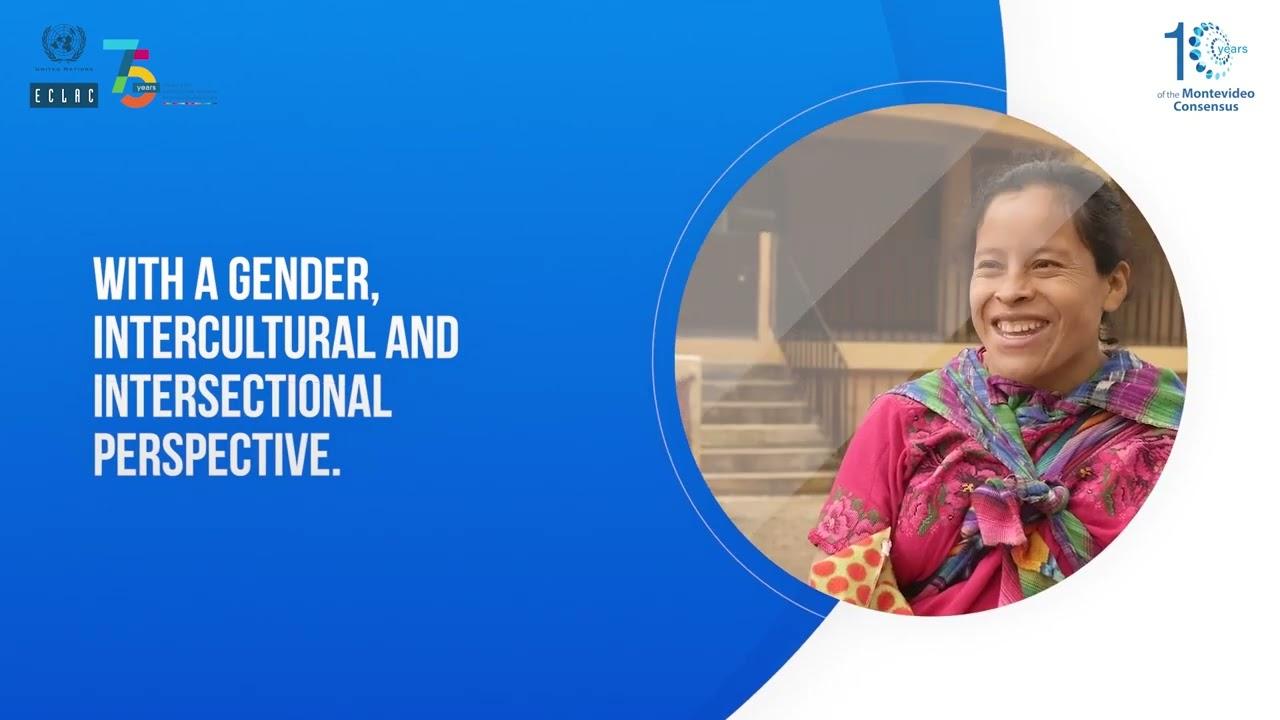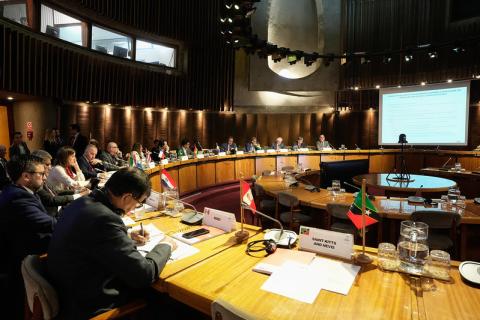Briefing note
At this time of pandemic provoked by the coronavirus disease (COVID-19), the need for international cooperation is more urgent on the fiscal side. For that reason, international financial organizations should grant favorable financing conditions to middle-income countries, with low-cost credit lines and debt relief, sustained Alicia Bárcena, Executive Secretary of the Economic Commission for Latin America and the Caribbean (ECLAC).
The senior United Nations official participated today in a virtual seminar entitled How to face the COVID-19 crisis in Latin America, organized by Spanish institution Casa de América. The event – moderated by Michael Reid, an editor at The Economist – was inaugurated by Antonio Pérez-Hernández, the Spanish institution’s director-general. Joining Alicia Bárcena as speaker was Luis Carranza, President of the CAF–Development Bank of Latin America.
In her remarks, ECLAC’s most senior representative recalled that the current crisis is neither a banking nor a financial one; it is a crisis of people, of the real economy.
She noted that countries have taken measures to mitigate the economic and social effects of the pandemic, ranging from the equivalent of 0.5% to 12% of GDP, but this will not be enough. Such measures must be reinforced by expanding fiscal space, she indicated.
She added that many countries in the region are deemed to be middle income – some of which, in the Caribbean, are already highly indebted – and as a result, they are not granted low-cost concessional facilities, or low interest rates.
“We are calling for multilateral organizations to make loans at favorable interest rates and to provide relief to highly indebted countries, deferring their debts or forgiving them. Otherwise, the payments will be impossible and fiscal space will be compromised,” she stated.
Alicia Bárcena added that Latin America and the Caribbean has a regional financial architecture dating back a long time that should, and can, complement the efforts made by international multilateral organizations.
“Development banks are not only an important source of resources for the region’s productive development and for the deepening of trade and financial integration. They are also a source of stable and countercyclical financing,” she said.
ECLAC’s Executive Secretary recalled that the crisis the region is undergoing in 2020, with an estimated -5.3% drop in GDP, will be the worst in all its history. The projections also anticipate a significant deterioration in labor indicators in 2020, with nearly 12 million more unemployed people in the region, in a labor force in which 53% of jobs are informal, which is especially serious, she noted.
She specified that the fall in GDP and rise in unemployment will have a direct negative impact on the income of households and on their chances of obtaining enough resources to meet basic needs. This will lead to 30 million more people finding themselves in situations of poverty.
In this context, she affirmed that some countries are protecting the workforce and income with advance payments, wage subsidies, unemployment insurance, and the forgiveness or suspension of payments for basic services, such as water, electricity and natural gas. However, she said, this is not enough; a basic income for citizens is needed that would allow for protecting the income of poor households for at least the next six months.
“ECLAC is calculating how much this basic income would cost, but we think it is both possible and urgent,” she expressed.
Bárcena also stressed that the coronavirus pandemic puts us at a civilizing crossroads: either we return to a globalization of concentration that is authoritarian, or we move towards a more democratic globalization, with a new development paradigm that recognizes social, environmental and economic interdependence.
“There are opportunities for transformative action. One of them, undoubtedly, lies in betting on regionalization. The territory matters, we will have to figure out how to close the gaps,” she stated.
She added that Latin America and the Caribbean must take back up its proposal for production, with industrialization, integration, and expansion of its complementarities.
“The future is going to be better, with greater technological and productive integration. A more egalitarian, just and sustainable future. We number nearly 650 million inhabitants and we can protect ourselves to be able to manage the external shocks the region is experiencing, make new industries viable, and promote networks for production and technological research among countries and subregions,” she asserted.
Finally, ECLAC’s Executive Secretary called for rethinking our relationship with nature in the post-pandemic period and for rebuilding a different society.
“Our planet is ailing. The new normal, post COVID-19, cannot be the same. Family consumption will be different. We have to think in terms of the circular economy and environmental sustainability. We must rethink our relationship with nature,” she concluded.



